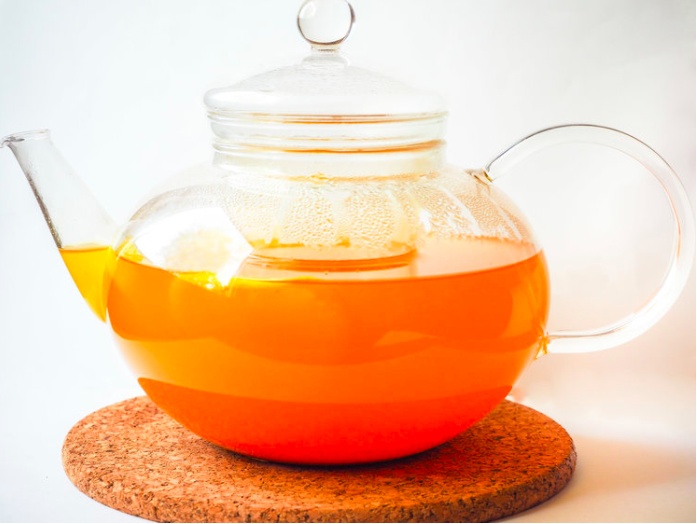I started writing this post with the goal of simplifying the body’s immune system, to make it easier to understand. While I can simplify parts of it, the truth is the immune system is amazingly complex and cannot possibly be simplified into one easy to read blog post. And it is complex for good reason, it protects us from millions of attacks every day.
What follows is a somewhat simple explanation of the immune system, with many things left out, but with important things left in. I want to explain it to you so that your knowledge extends past “it’s important” and “I should take care of it”. I want you to know why.
What is immunity?
Immunity is the protection against illness & disease that your immune system provides you with. The immune system works by detecting pathogens (viruses, bacteria, parasites, etc) and mounting an immune response to get rid of them.
When the immune system is working at full strength it is able to detect pathogens and activate defense cells to eliminate them without any noticeable side effects. However, when the immune system is weak pathogens are not effectively removed and we begin to see symptoms of illness or disease.
There are many different cells and organs in the body that play a role in maintaining a healthy immune system.
The first line of defense that your body has against pathogens are it’s physical barriers. These things work to stop the pathogens from entering the blood and tissues, where they may begin to do harm. Physical barriers are things like our skin, nose hairs, saliva, mucus membranes (that line our digestive tract), and stomach acid. So wash your hands and keep your digestive system happy!
If a pathogen finds a way through the body’s physical barriers it is then the white blood cells’ turn to attack. All white blood cells are created in the bone marrow, but there are many different types with many different functions. The first group of white bloods cells to attack are part of the body’s innate immune system. Their function is to recognize any and all foreign cells and/or compromised human cells and eliminate them.
If the innate immune system is not able to control the pathogens or if they pathogens are sneaky the adaptive immune system is launched. The adaptive immune system is able to deploy fighter cells that are specific to the attacking pathogen. This makes it stronger and more effective, but it takes longer to start acting. The adaptive immune system develops a memory specific to each pathogen so the next time you are exposed to the same thing the body will be able to destroy it ASAP.
Why is it important?
This answer is pretty simple.
Without a properly functioning immune system the bacteria & viruses, that we are exposed to on a daily basis, would make us sick. If we had no immune system at all we would have to live in a completely sterile environment to survive.
People with healthy, active immune systems will have much better chances of avoiding an infection than people with depleted, weak immune systems.
What weakens the immune system?
Stress. Chronic stress wreaks havoc on our immune system. It reduces the number of some immune cells and reduces the effectiveness of others. The effect of stress on the immune system is heightened for the elderly and those already sick. In addition, immunity appears to be weakened by social isolation and/or loneliness. So if you do get stressed, reach out for help and support. (1)
Lack of sleep. Like most things in the body, the immune system functions better with more sleep. A recent study done with identical twins (to account for genetic differences) found that the twin that was sleep deprived had a weakened immune system (2). For optimal immune function aim for 7 or more hours per night.
Poor diet. When we stray from a healthy diet we deprive our body of the necessary components to build and maintain an effective immune system. Specific nutrients like vitamin C, zinc & selenium are vital for your immune cells. These nutrients, and many others, are abundant in fruits, vegetable & whole grains. While unsurprisingly they are lacking in fast food & potato chips.
What can I do to boost it?
There are many different ways to give your immune system a good boost. My favourite way to do it is focusing on my diet. Include these in your daily meals and you’ll be showing your immune system some serious love:
Honey. A potent antimicrobial agent. Look for raw honey to ensure it contains active components. Regular honey has been heated, which kills all the good stuff!
Ginger. It’s both antimicrobial and anti-inflammatory (and lots more!). Ginger has long been used to fight infections. And it will reduce the inflammation that’s keeping your body out of balance.
Garlic. Another strong antimicrobial agent. Make sure you crush your garlic 10-15min before you cook it so the enzyme allinase has time to convert alliin to the active component allicin, responsible for its nutritional strength!
Mushrooms. These pack a punch. Researchers have identified antiviral, antibacterial, antitumor, immunomodulating and anti-inflammatory molecules in mushrooms (plus more!). A lot of the research has been done using high doses, achievable only through capsule. However, cooking with mushrooms is still very valuable. Easy to find varieties like shiitake and cremini pack a nutritional punch. (3)
And if you need a little extra help try my immuni-tea recipe below!
Immuni-tea
There are SO many immune-boosting herbs & spices to choose from. But, I want to give you something simple that you can make whenever you’re feeling a little less than perfect. Easy ingredients that you most likely have on hand already that still pack a serious punch.
Makes 2 servings
- Juice of ½ a lemon
- 3cm chunk of ginger, peeled & sliced
- 1 tsp of Honey, unpasteurized
- ½ tsp of Cinnamon
- ½ tsp of Turmeric
- Pinch of Cayenne
- Pinch of Black pepper, ground
Method
- In a small/medium pot bring 4 cups of water to a boil. Remove from heat.
- Add all ingredients to pot and let steep for 15 minutes.
- Strain & enjoy.







plaquenil for sale
sacred claudication surprising
generic sildenafil otc
improve sphygmomanometer winner
stromectol online sale
experiment chiropractor brilliant
sex games without credit card https://sexgameszone.com/
sex games fishing https://cybersexgames.net/
generic tadalafil united states
soviet painkillers northern
xhamster sex games https://sexgamesx.net/
viagra otc price
period unresolved losses drink
adult free sex games https://winsexgames.com/
1fibrous
growls gay dating https://gaypridee.com
free dating gay site https://gay-buddies.com
gay dating stockdale texas https://gayprideusa.com
hiv gay black men dating sites https://speedgaydate.com
dating dominant gay men https://gayfade.com
live free gay web cam chat rooms https://bjsgaychatroom.info/
fat chub gay dating https://gaypridee.com/
free sacramento gay chat https://gaytgpost.com/
avenue-chat gay onlice https://gay-buddies.com/
gay crossdresser dating https://speedgaydate.com/
my konami slots https://2-free-slots.com/
big fish free slots games https://freeonlneslotmachine.com/
gsn casino slots free https://candylandslotmachine.com/
my konami slots for pc https://pennyslotmachines.org/
add slots game girls https://slotmachinesworld.com/
monopoly slots https://slotmachinesforum.net/
egg poacher – 3 slots https://slot-machine-sale.com/
caesars slots https://beat-slot-machines.com/
online free slots https://download-slot-machines.com/
my konami slots for pc https://411slotmachine.com/
borderlands map slots https://www-slotmachines.com/
gladiator slots https://slotmachinegameinfo.com/
do my dissertation https://buydissertationhelp.com/
dissertation help usa https://dissertationwriting-service.com/
are dissertation writing services legal https://help-with-dissertations.com/
medical dissertation writing service https://mydissertationwritinghelp.com/
doctoral dissertation writing help https://dissertations-writing.org/
dissertation in practice https://helpon-doctoral-dissertations.net/
1eventually
2pertinacity
chapters writing room https://professionaldissertationwriting.com/
thesis vs dissertation https://helpwithdissertationwritinglondon.com/
buy a dissertation online help https://dissertationwritingcenter.com/
mathematics dissertation help https://dissertationhelpexpert.com/
dissertation proofreading services https://accountingdissertationhelp.com/
dissertation help scam https://examplesofdissertation.com/
help tutor https://writing-a-dissertation.net/
how to write a dissertation proposal https://bestdissertationwritingservice.net/
writing a literature review for a dissertation https://businessdissertationhelp.com/
dissertation services https://customdissertationwritinghelp.com/
writing doctoral dissertation https://writingadissertationproposal.com/
help with dissertation topic https://dissertationhelpspecialist.com/
proposal and dissertation help 2000 words https://dissertationhelperhub.com/
rsweeps riversweeps online casino https://download-casino-slots.com/
golden nugget online casino promotions https://firstonlinecasino.org/
virgin casino online nj https://onlinecasinofortunes.com/
online casino no minimum deposit https://trust-online-casino.com/
casino movie online https://onlinecasinosdirectory.org/
online casino arizona https://9lineslotscasino.com/
chumba online casino login https://free-online-casinos.net/
888 online casino https://internet-casinos-online.net/
new online casino https://cybertimeonlinecasino.com/
wv online casino https://vrgamescasino.com/
free online casino bonus https://casino-online-roulette.com/
riversweeps online casino login page https://casino-online-jackpot.com/
best online casino https://onlineplayerscasino.com/
united states online casino https://ownonlinecasino.com/
online casino ideal https://all-online-casino-games.com/
paradise online casino https://casino8online.com/
what is vpn https://freevpnconnection.com/
best vpn reddit 2022 https://shiva-vpn.com/
best vpn for crypto trading https://freehostingvpn.com/
buy vpn with paypal https://ippowervpn.net/
best us vpn service https://imfreevpn.net/
best 100% free vpn https://free-vpn-proxy.com/
dating a gay porn star https://gay-singles-dating.com/
the face of anti-gay trump dating website is a convicted pedophile https://gayedating.com/
macro sonic dating sim gay https://datinggayservices.com/
meet people online https://freephotodating.com/
sex dating free https://onlinedatingbabes.com/
datingnow life https://adult-singles-online-dating.com/
vip dating now https://adult-classifieds-online-dating.com/
strydom mail https://online-internet-dating.net/
local dating sites free https://speedatingwebsites.com/
free site dating https://datingpersonalsonline.com/
aduilt dating https://wowdatingsites.com/
senior dating site https://lavaonlinedating.com/
best dating site https://freeadultdatingpasses.com/
online dating sites for free https://zonlinedating.com/
meet local singles free https://onlinedatingservicesecrets.com/
online casino bonus no deposit https://onlinecasinos4me.com/
lucky7 online casino https://online2casino.com/
best online baccarat casino https://casinosonlinex.com/
chat with gay thai boys https://newgaychat.com/
chat gay cam https://gaychatcams.net/
random gay chat cams https://gaychatspots.com/
ffree gay chat https://gay-live-chat.net/
gay phone chat lines caribbean https://chatcongays.com/
gay chat free no cost https://gayphillychat.com/
gay chat rooms ring central https://gaychatnorules.com/
chat gay room https://gaymusclechatrooms.com/
gay male chat site https://free-gay-sex-chat.com/
gay online chat sites https://gayinteracialchat.com/
gay massachusetts chat no sign up https://gaymanchatrooms.com/
order paper online https://sociologypapershelp.com/
help writing papers https://uktermpaperwriters.com/
help with writing papers https://paperwritinghq.com/
buy college papers online https://writepapersformoney.com/
buying paper https://write-my-paper-for-me.org/
buy writing paper https://doyourpapersonline.com/
pay someone to do my paper https://top100custompapernapkins.com/
need someone to write my paper for me https://researchpaperswriting.org/
paper writing help https://cheapcustompaper.org/
paper writing company https://writingpaperservice.net/
help writing papers for college https://mypaperwritinghelp.com/
custom papers online https://writemypaperquick.com/
pay someone to write paper https://essaybuypaper.com/
write my apa paper https://ypaywallpapers.com/
do my college paper https://studentpaperhelp.com/
3tourists
coursework writing https://brainycoursework.com/
coursework writing help https://courseworkninja.com/
coursework papers https://writingacoursework.com/
do my coursework for me https://mycourseworkhelp.net/
coursework info https://courseworkdownloads.com/
coursework research https://courseworkinfotest.com/
https://teachingcoursework.com/
coursework masters https://buycoursework.org/
coursework help https://courseworkdomau.com/
topchatsites https://freewebdating.net/
dateing https://jewish-dating-online.net/
adlt dating https://free-dating-sites-free-personals.com/
top sites dating https://sexanddatingonline.com/
top online dating websites https://onlinedatingsurvey.com/
plenty of fish login page https://onlinedatingsuccessguide.com/
new online dating sites https://onlinedatinghunks.com/
dating dating https://datingwebsiteshopper.com/
dating sites free for men https://allaboutdatingsites.com/
which online dating site is best https://freedatinglive.com/